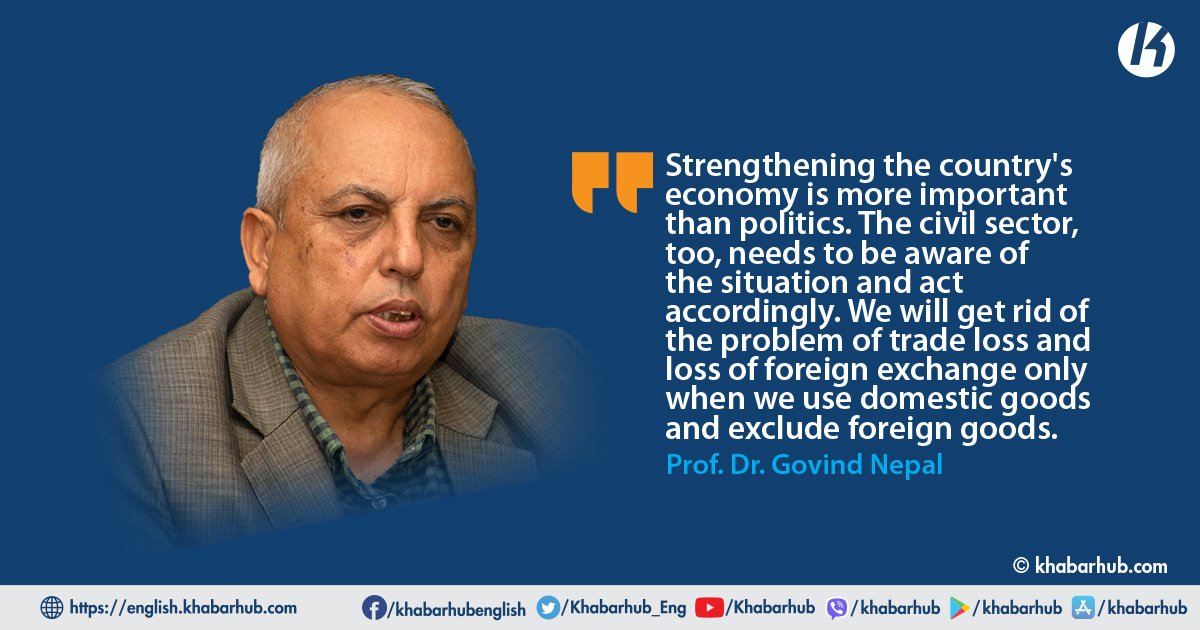KATHMANDU: We have taken loans but have not been able to make good use of them. We have not been able to pay it back. Unfortunately, the burden is increasing.
The state of the economy today is very worrying. I don’t think that the government can maintain this in its own way. As we have an open border, there is another calculation of the import of goods through informal routes.
Rather than relying on the government, we have to say that the government should not waste resources, the government should not do ‘policy corruption’, otherwise it would get exposed.
Strengthening the economy is more important than politics now. From the civil sector, we can correct this by becoming aware of the situation ourselves.
Only when we use domestic goods and exclude foreign goods, we will get rid of this problem of trade loss and loss of foreign exchange.
Looking at the current systems, there is a fear that Nepal’s financial systems will collapse. What do you do with a deposit at a 14 percent interest rate? How to pay the debt? There is no guarantee that you will get a pension today.
We do not believe in Nepali products. There is no reason to say that our products are better than those outside. For the one who chooses the second way and brings the goods without paying the customs, the price is reduced and the one who brings the goods by paying the customs is more expensive.
If the current trend continues, we will face a crisis in about 4 years. The government has not paid attention to it. The government thinks it got enough, it has earned enough. Therefore, we as citizens should be aware and emphasize indigenous products.
Why don’t we use locally assembled goods rather than using foreign vehicles, bikes and bicycles? When we do this, the large amount of money that is currently going to business will be transferred to the industry.
In the GDP of 4.8 trillion, the private sector has mobilized 4.5 trillion. Even when sought through the leaders, there is no money. All must be accounted for. We have to see who invested how much and where. After taking the loan, it has to be tracked.
Looking at the current systems, there is a fear that Nepal’s financial systems will collapse. What do you do with a deposit at a 14 percent interest rate? How to pay the debt? There is no guarantee that you will get a pension today.
In order to save the country and the economy, there is a need to bring ordinances and bills. All the economic structures of the country are disturbed. We did not even imagine that this would ever happen.









Comment